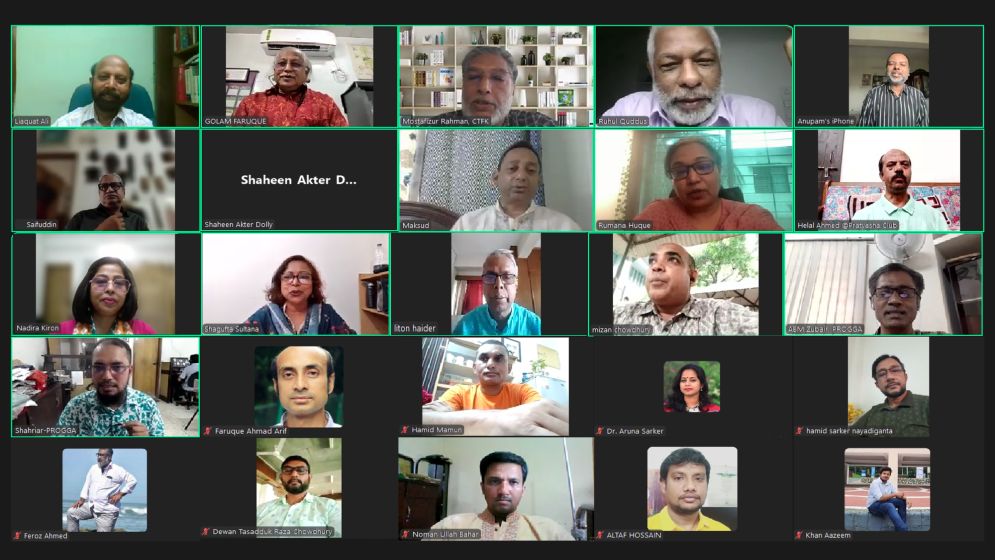Tobacco industry’s targeting of youth under fire at World No Tobacco Day press briefing

Public health experts and anti-tobacco advocates today issued a stern warning against the tobacco industry's persistent targeting of youth, calling for urgent reforms to tobacco control laws in Bangladesh.
The calls were made during a virtual press conference jointly organized by PROGGA (Knowledge for Progress) and the Anti-Tobacco Media Alliance (ATMA), ahead of World No Tobacco Day 2025, to be observed on 31 May.
The theme for this year’s World No Tobacco Day is “Tamak Companir Kutokoushal Unmachan Kori, Tamak O Nicotine Mukto Bangladesh Gori” (Unmasking Tobacco Industry’s Tactics: Building a Tobacco- and Nicotine-Free Bangladesh).
Speakers at the event highlighted the alarming strategies employed by the tobacco industry to addict the younger generation and sustain long-term profits.
Experts emphasized that youth have become the prime target of aggressive tobacco advertising and product placement.
A 2016 study by the Johns Hopkins Bloomberg School of Public Health found that 487 out of 507 tobacco retailers within 100 meters of Dhaka schools placed products near candy, chocolates, and soft drinks.
Flavored vape products—such as bubblegum, cherry, and chocolate—are making it increasingly difficult for children to differentiate them from regular treats. Additionally, vape devices often resemble USB drives, pens, or candy, allowing users to conceal them from parents and teachers.
The briefing underscored the grave human cost of tobacco use in Bangladesh, which claims approximately 161,000 lives each year. Despite these figures, the industry continues to operate with limited accountability, prompting calls for stronger government intervention.
Among the most pressing calls to action was the finalization of the ongoing amendment to the Smoking and Tobacco Products Usage (Control) (Amendment) Act, 2013.
Advocates stressed the need to ensure that this legislative process remains free from interference by the tobacco industry, which has long been accused of undermining public health efforts.
Participants also underscored the importance of adopting stronger fiscal measures. One such proposal involved merging the low and medium-tier categories of cigarettes, effectively reducing the current four-tier pricing system to three. This, they argued, would simplify taxation and curb the affordability of tobacco products, particularly for youth and low-income groups.
Additionally, speakers urged the government to divest its shares from tobacco companies, highlighting the contradiction of promoting public health while holding financial stakes in harmful industries.
Another recommendation was the removal of cigarettes from the list of essential products—a designation seen as outdated and incompatible with current health priorities.
Finally, the need for a comprehensive digital crackdown was emphasized. Advocates called for a complete ban on the advertisement, promotion, and marketing of tobacco and nicotine products across all social media platforms, where young people are especially vulnerable to industry messaging.
The event was hosted by Nadira Kiron, Co-convener of ATMA, with Hasan Shahriar, Head of Programs at PROGGA, presenting the key points. Distinguished speakers included Dr. Liakat Ali of the Health Sector Reform Commission; Prof. Dr. Golam Mohiuddin Faruque, President of the Bangladesh Cancer Society; Prof. Dr. Anupam Hossain, public health expert; Md. Mostafizur Rahman, former BCIC Chairman; and several other health and development sector leaders.
With mounting evidence of the tobacco industry’s manipulation of youth, speakers urged policymakers to take swift and decisive action to protect future generations and move toward a tobacco- and nicotine-free Bangladesh.
—

